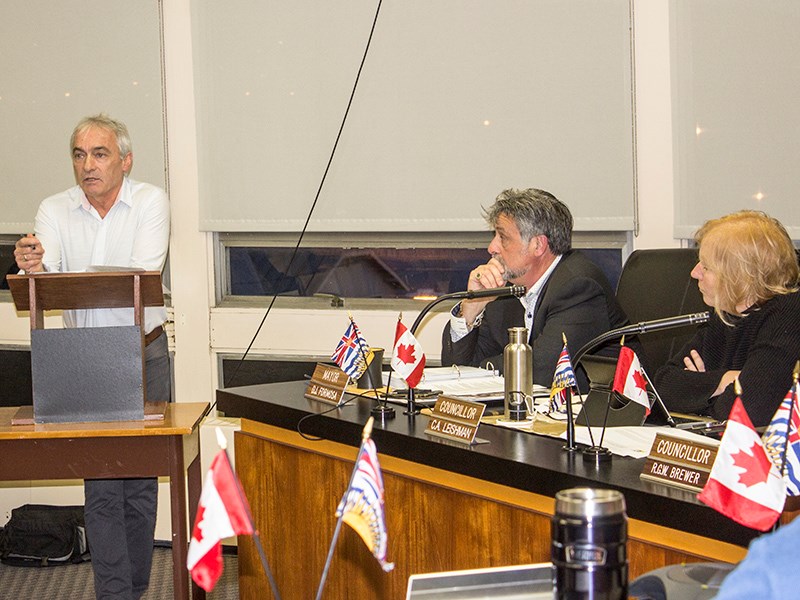City of Powell River council moved to approve a letter of endorsement for a new regional solid-waste management plan at its meeting on December 7, but due to financial implications to taxpayers did not consent to a bylaw that would pay for the plan.
“There are a lot of rabbit holes related to this one,” said city councillor and finance committee chair Russell Brewer, one of two municipal directors who sit on the regional board.
City clerk Chris Jackson gave his non-consent recommendation to a proposed Solid Waste Management Conversion and Service Establishment bylaw that was approved by council.
“It's not straightforward,” said Jackson. “The main idea is it's a [Powell River] Regional District bylaw to try and create a service in which they can collect revenue from the electoral areas and the city.”
The proposal includes converting a supplementary letters patent defining the regional district’s garbage disposal service to an updated and current waste-management service bylaw.
“It doesn't seem like moving to a conversion bylaw would cost anything,” said Jackson. “It's a good idea in principle.”
The bylaw is not a good idea in terms of cost to the city, according to Brewer.
“It's asking the city to take on additional costs of up to $83,000 for no increase in service-level provisions to city residents,” said Brewer. “To add another cost burden for services our residents aren't receiving is not respectful. I can't support it.”
The bylaw comes with increased costs to electoral areas A, B, C and D and the city, with Lasqueti Island receiving a significant reduction, according to Jackson and Brewer.
Under the existing service model for waste disposal, electoral areas A, B, C, D and the city collectively contribute approximately $460,000 in operating costs. Lasqueti has its own service and pays approximately $140,000. The new bylaw would move the disposal service from the existing two-area model to one.
“They want to combine the service areas, but keep the plans separate,” said Jackson. “We don't know what that cost is. The [Lasqueti] plan hasn't been finished; it's not at the stage where there's been a lot of numbers analyzed.”
Total taxation from all of the electoral areas and the city would be approximately $600,000, with the city’s contribution at 50 per cent. Under the proposed bylaw, the increase in cost from the city’s 2017 tax contribution would be approximately $83,000.
“The regional district would adjust taxes, so every year the city and electoral areas A, B, C and D would increase and Lasqueti’s would drop,” said Jackson. “In the end, Lasqueti is getting a net benefit by reducing their taxes for solid waste and everybody else is going to pay.”
Another concern for council in Jackson’s recommendation is a significant increase to a tax requisition amount. The regional district is requesting it be set at $1.2 million, double the current limit.
“One electoral area, the biggest paying one, is asking to provide more rationale or be more conservative,” said Jackson. “The regional district has to look at that and the weighting value they want to have on these arguments.”
The vote will not be weighted, a system where decisions are based on population, which favours the city.
“To get the amendment bylaw through, that would be a two-thirds single vote,” said regional district administrative officer Al Radke. “Weighted votes are only taken at the financial level when it involves the five-year term budget.”
Council’s decision sends the bylaw back to the regional district to consider seven more fiscally conservative and equitably reasonable amendments, according to Jackson.
Brewer and fellow councillor and district board member CaroleAnn Leishman both said the amendments are unlikely to be approved.
“After this,” said Leishman, “there's no other input from council.”



